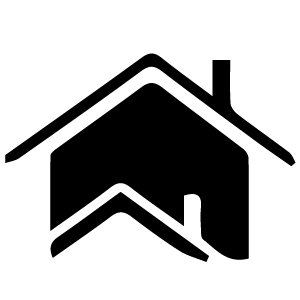How to Enhance the Energy Efficiency of Your Mobile Home
Improving the energy efficiency of your mobile home is not just about reducing utility bills—it's also about creating a more comfortable living environment. With a few strategic upgrades and regular maintenance, you can enhance your home’s energy efficiency and enjoy both financial and environmental benefits. Here’s how to make your mobile home more energy-efficient, with tips on insulation, sealing gaps, upgrading windows, and more.
1. Add or Upgrade Insulation
Insulation plays a critical role in maintaining a consistent indoor temperature and reducing energy consumption. Mobile homes often have inadequate insulation, especially if they are older. Here’s how to address this:
Inspect Existing Insulation: Check the insulation in your walls, floors, and ceiling. If it’s old, damaged, or insufficient, consider upgrading it. Adding more insulation can significantly improve energy efficiency.
Consider R-Value: When upgrading insulation, choose materials with a high R-value (thermal resistance). The higher the R-value, the better the insulation. For mobile homes, fiberglass batts, spray foam, and reflective barriers are popular choices.
Focus on Critical Areas: Pay special attention to areas prone to heat loss, such as around windows, doors, and in unconditioned spaces like the attic and crawl space.
2. Seal Gaps and Leaks
Air leaks can undermine even the best insulation efforts. Sealing gaps and leaks ensures that heated or cooled air stays inside, improving overall efficiency. Here’s what you can do:
Inspect for Drafts: Check around windows, doors, and other openings for drafts. Common areas include gaps between the floor and the wall, around electrical outlets, and at joints in the walls and ceiling.
Use Weatherstripping: Apply weatherstripping to doors and windows to close gaps and prevent air leaks. Choose high-quality materials that can withstand weather changes and provide a tight seal.
Apply Caulk: For cracks and gaps, use caulk to seal areas around windows, doors, and other openings. This helps to prevent air infiltration and reduce heat loss.
3. Upgrade Windows
Old or single-pane windows can be major sources of heat loss. Upgrading your windows can improve energy efficiency and enhance comfort. Here’s how to approach window upgrades:
Install Energy-Efficient Windows: Consider double or triple-pane windows with low-E (low emissivity) coatings. These windows are designed to minimize heat transfer and reduce energy costs.
Use Window Films or Covers: If replacing windows isn’t an option, apply window films or use thermal curtains to help insulate and reduce heat loss. These solutions can provide a temporary boost in efficiency.
Check Window Seals: Ensure that the seals around your windows are intact and functioning properly. Damaged seals can lead to drafts and energy loss.
4. Optimize Your HVAC System
Regular maintenance of your HVAC system ensures it runs efficiently and effectively. Here’s how to keep your system in top shape:
Schedule Regular Inspections: Have a professional inspect and service your HVAC system annually. This includes cleaning ducts, checking for leaks, and ensuring optimal performance.
Change Air Filters: Replace air filters regularly to maintain good air quality and system efficiency. Clogged filters can reduce airflow and force your system to work harder.
Use Programmable Thermostats: Install a programmable thermostat to better control your home’s temperature. Set it to lower temperatures when you’re not at home or during the night to save energy.
5. Enhance Ventilation
Proper ventilation helps manage indoor air quality and prevents moisture buildup, which can lead to energy inefficiencies. Consider the following:
Install Ventilation Fans: Use exhaust fans in the kitchen and bathroom to remove excess heat and moisture. This helps maintain a balanced indoor environment and reduces the load on your HVAC system.
Check and Clean Vents: Regularly inspect and clean air vents to ensure unobstructed airflow. Dirty or blocked vents can reduce system efficiency and affect comfort.
6. Invest in Energy-Efficient Appliances
Upgrading appliances to energy-efficient models can significantly reduce energy consumption. Look for appliances with the ENERGY STAR® label, which indicates they meet strict energy efficiency guidelines.
Choose Efficient Lighting: Replace incandescent bulbs with LED or CFL bulbs. These options use less energy and last longer, contributing to overall savings.
Opt for Energy-Saving Appliances: When it’s time to replace appliances such as refrigerators, washing machines, and water heaters, choose models designed to consume less energy.
7. Consider Renewable Energy Options
Renewable energy sources can further enhance your mobile home’s energy efficiency. While initial costs may be higher, they offer long-term savings and environmental benefits.
Explore Solar Panels: Install solar panels to generate your own electricity and reduce dependence on traditional energy sources. Solar power can help offset energy costs and increase your home’s value.
Utilize Solar Water Heaters: Consider solar water heaters for more efficient water heating. These systems use sunlight to heat water, reducing energy consumption.
8. Regular Maintenance and Upgrades
Ongoing maintenance is key to sustaining energy efficiency. Regularly inspect and address any issues with insulation, sealing, windows, and HVAC systems. Implementing small upgrades and staying proactive can lead to long-term savings and comfort.
By following these tips and working with Capital West for any necessary upgrades or professional services, you can enhance the energy efficiency of your mobile home, save on utility bills, and enjoy a more comfortable living environment. Contact Capital West to explore how our services can help you achieve your energy efficiency goals.


